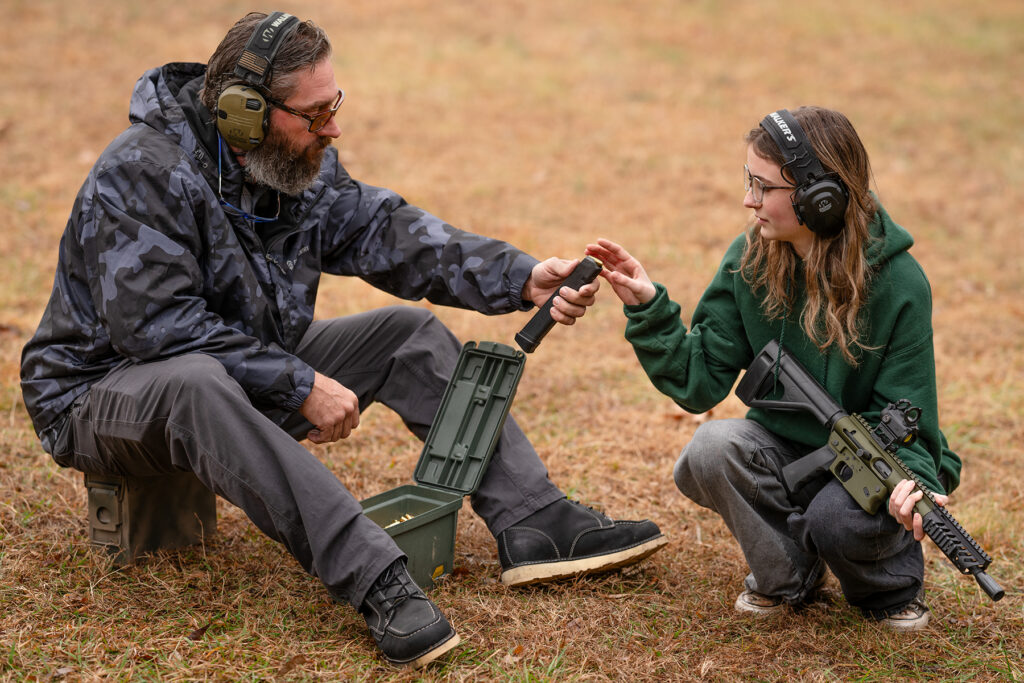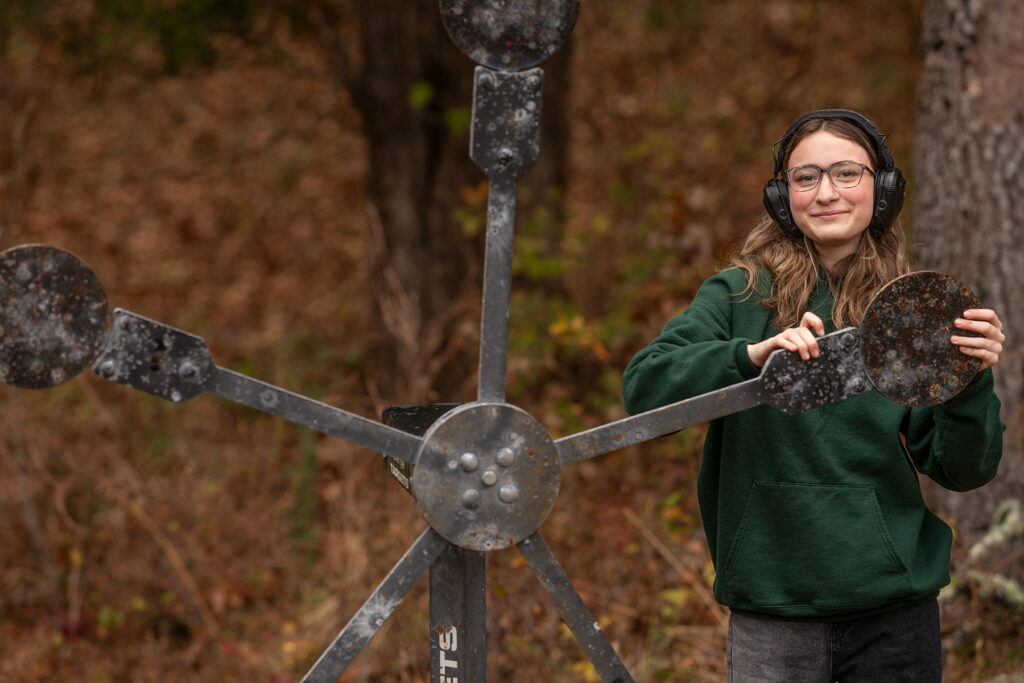





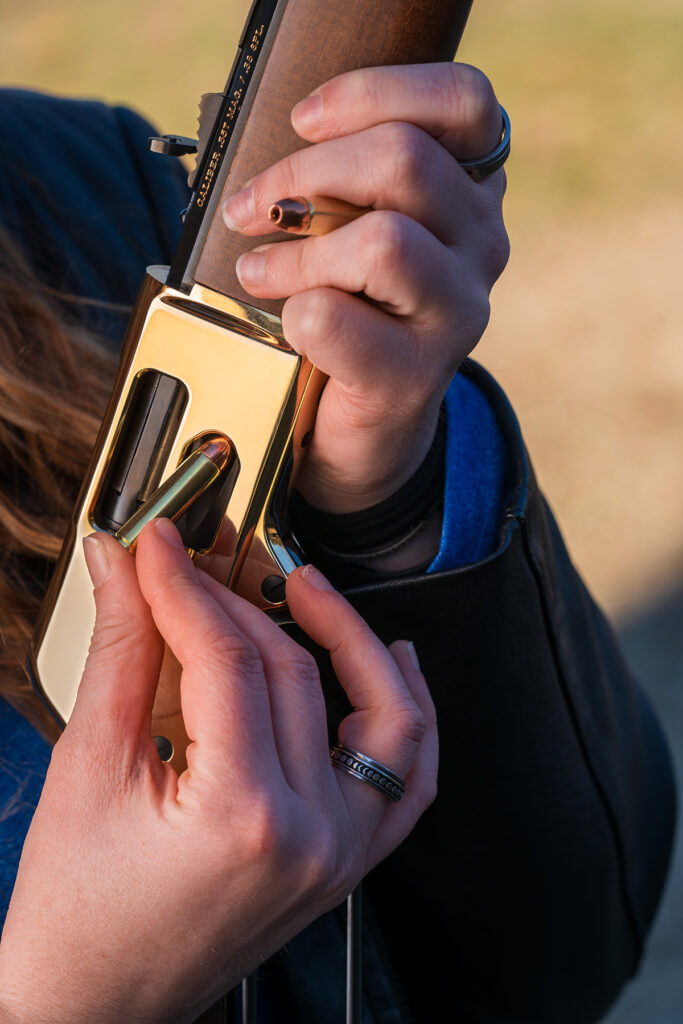
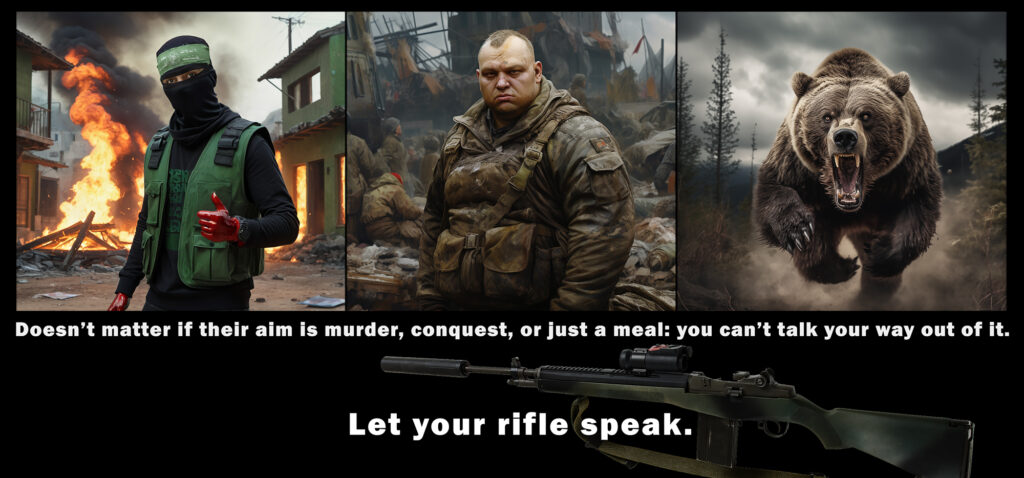
…but that’s utter BS. St.George didn’t take to drink after slaying the dragon. Neither did Bard the Bowman, the archer who slew Smaug. And I am quite sure that every man who shot down a Soviet or Russian helicopter with a Stringer or Strela feels pretty good about that. This doesn’t change if the slain dragon was humanoid: people who have successfully defended themselves or their families against terrorism or criminal violence don’t lose sleep over the foes they vanquished.
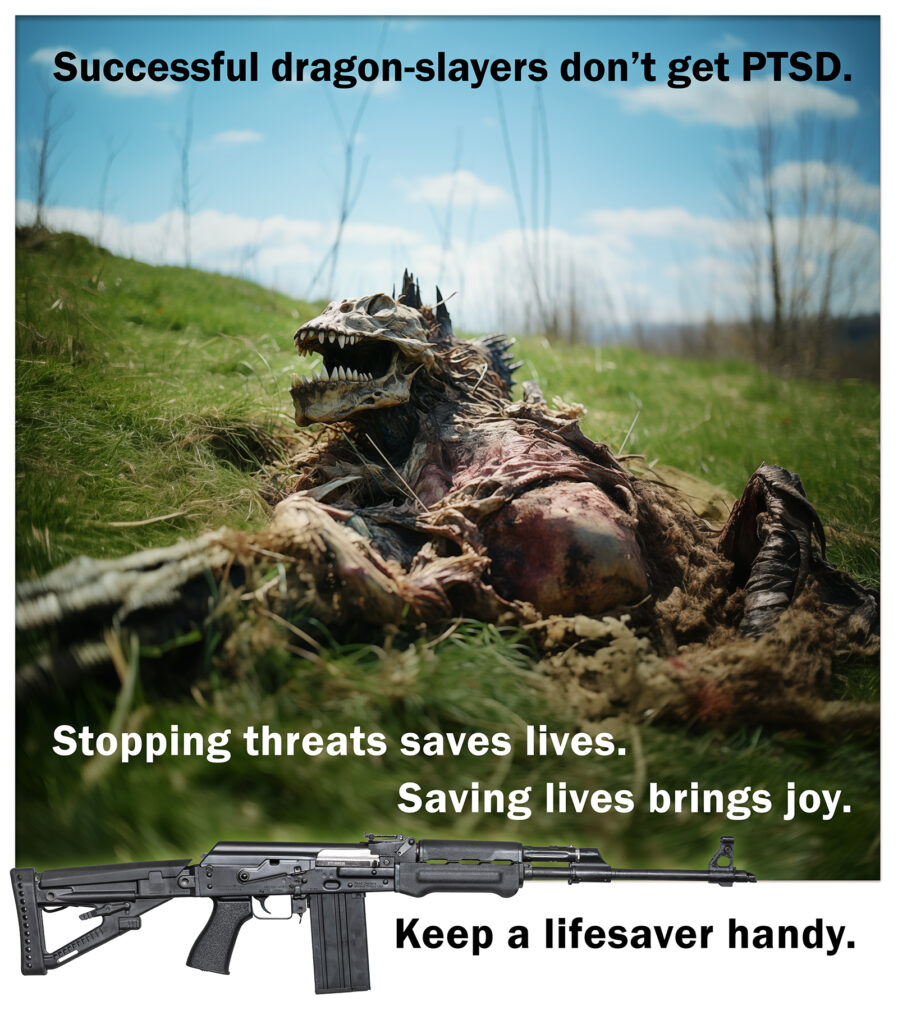



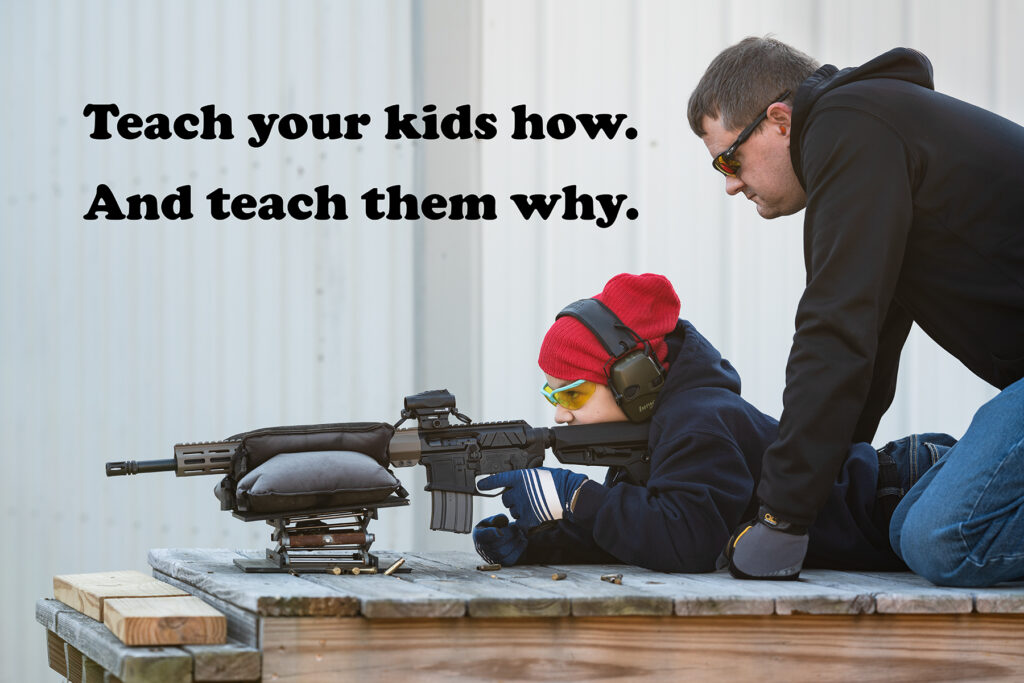
Incidentally, the rifle shown is the perfect configuration for left-handed shooters. Completely ambidextrous Sig M400 SDI lower is combined with the left-ejecting Pro 2A Tactical upper. The result is a tac driver that’s also sound suppressor-friendly.
…is a parent whose fingers are tired from loading magazines.
